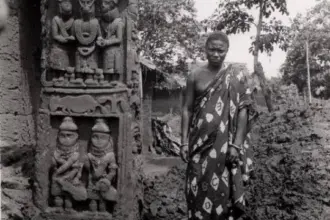Liverpool is renowned for many things: world-class football clubs, iconic music legends, and its picturesque skyline. However, beneath this vibrant facade lies a darker history – the legacy of slavery.
Between 1700 and 1800, Liverpool’s ships transported over 1.5 million Africans across the Atlantic. By the close of the 18th century, Liverpool had surpassed London and Bristol to become the world’s largest slave port. The city’s economy became so intricately intertwined with slavery that it earned the title of the “metropolis of slavery.” Even today, centuries after the abolition of slavery, Liverpool still grapples with its role in the sale of human beings.

Many of its streets, buildings, and public parks bear the names of former slave merchants, serving as stark reminders of this dark period. Bold, Tarleton, and Cunliffe Streets in the city centre are just a few examples. Notably, even the town hall was constructed using wealth generated from the slave trade.

In 2007, the International Slavery Museum was established, offering a unique exploration of the trans-Atlantic slave trade. Its Archives Centre holds numerous original documents and records related to slavery, including a section on pre-slave trade life and culture in West Africa.

The Curator of Legacies of the Slave Trade and Empire at the Liverpool Museum, Miles Greenwood, mentions that most of these materials have been digitized and are available on microfilm, ensuring broader access to this crucial history. Greenwood emphasises the importance of the museum, stating, “Not everyone in Europe and America had the opportunity to learn about the history of the slave trade, so the Slavery Museum was established to provide people with free access to this knowledge.”
The museum is situated along Liverpool’s waterfront, where visitors can immerse themselves in the untold stories of enslaved people and gain insight into both historical and contemporary slavery. The museum attracts thousands of visitors every year, underscoring Liverpool’s commitment to addressing the painful legacy of the slave trade and the growing calls for justice for the descendants of slaves.
In September 2023, the United Nations (UN) published a report urging countries to consider financial reparations for the Atlantic Slavery, marking a significant step in acknowledging historical injustices.
Liverpool, a city that was built on the slave trade, has also become home to the oldest black community in Europe, highlighting the enduring legacy and the resilience of those who have overcome this dark history.






















